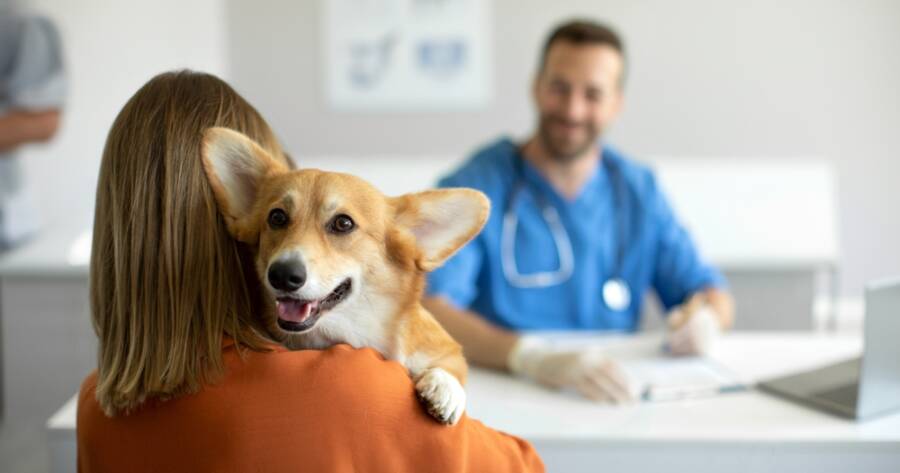Every life stage of a pet comes with unique health needs and concerns. As a responsible pet owner, understanding how to tailor veterinary visits according to your pet’s age is crucial. From energetic puppies to wise seniors, each stage requires specific attention to ensure optimal health and well-being. By aligning vet visits with your pet’s life stage, you can provide targeted care that supports their development, longevity, and quality of life.
Welcoming Your New Puppy
Bringing a new puppy into your home is an exciting time, but it also comes with the responsibility of establishing a solid foundation for their health. Initial vet visits often focus on vaccinations, deworming, and a complete physical examination. Vaccination schedules typically start at six to eight weeks old and may continue every few weeks until the puppy is around 16 weeks.
During these early visits, your vet might discuss nutrition, parasite prevention, and other crucial aspects of puppy care. Behavioral guidance and socialization tips help prepare your puppy for a well-adjusted adulthood. These foundational visits are the starting point for monitoring growth, identifying potential issues, and building a lasting relationship with your veterinarian.
Attentive Care for Adolescent Pets
As puppies mature into young adults, their vet visits will adapt to their changing needs. During adolescence, there may be a focus on spaying or neutering and ongoing vaccinations. While these procedures can often occur between six months to a year, the timing can vary depending on breed and individual health.
Dietary adjustments might be necessary to support growth and energy levels, while behavior monitoring ensures any emerging issues are addressed promptly. Routine health checks during this developmental stage are imperative for detecting possible hereditary conditions early and maintaining crucial preventive care for long-term health.
Routine Visits for Adult Pets
As pets enter adulthood, their healthcare needs focus on maintenance and prevention. Regular vet visits, usually annually, are vital for monitoring weight, dental health, and general condition. Adult pets benefit from ongoing vaccinations and heartworm, flea, and tick prevention measures to safeguard their health in various environments.
Discussions about diet adjustments and exercise routines help prevent obesity and associated health issues. Blood tests and other diagnostics may form part of routine assessments, offering insights into early signs of disease. Adult stage visits are optimal times to reinforce a personalized wellness plan that supports your pet’s lifestyle.
Special Attention for Senior Companions
Senior pets require more frequent and specialized veterinary attention to address the health challenges often associated with aging. It’s common for senior cats and dogs to visit the vet two to three times a year for comprehensive health evaluations. These visits often include thorough examinations, blood panels, and urine tests to monitor their organ function and detect potential chronic conditions.
Managing arthritis, vision, and hearing loss, along with evaluating potential cognitive decline, are key components of senior care. Vets may recommend dietary changes to manage metabolism changes or support joint health. These increased interactions with your vet can help in adapting and responding to your pet’s dynamic health needs more effectively.
Monitoring Behavioral Changes Across Life Stages
Changes in behavior often indicate underlying health conditions at any pet life stage. During vet visits, sharing observations about behavioral shifts, from anxiety in puppies to disinterest in senior pets, can provide valuable context for diagnosis. Vets can assist in modifying treatment plans or recommending suitable interventions tailored to your pet’s life stage.
Attention to behavioral health complements medical care, contributing to your pet’s overall well-being. Whether addressing behavioral training in young pets or accommodating the comfort of older pets through environmental adjustments, open communication with your vet ensures customized support through all life stages.
Preparing for Each Vet Visit
Thorough preparation for vet visits can enhance the experience for both you and your pet, ensuring comprehensive quality care. Familiarize yourself with any documentation or history that may be relevant, and prepare questions or concerns you wish to discuss. Bringing a list of any medications or supplements your pet is taking can help align ongoing treatments.
Anticipate your pet’s reaction to the clinic environment and plan for a comfortable trip, using carriers or leashes safely. Familiarity and positive reinforcement around veterinary visits minimize stress over time, paving the way for smoother vet interactions throughout your pet’s life.
Maximize Your Vet Connection
Tailoring vet visits to suit your pet’s distinct life stages enables proactive and personalized healthcare. By focusing on specific needs — such as growth assessments for puppies or comprehensive exams for seniors — you actively contribute to your pet’s holistic well-being.
Monitoring behavioral changes and remaining responsive to evolving requirements facilitates early intervention and promotes long-term vitality. Engaging thoughtfully with veterinary care reflects a commitment to fostering your pet’s health journey, ensuring they are valued, comfortable, and cherished companions at every age.

